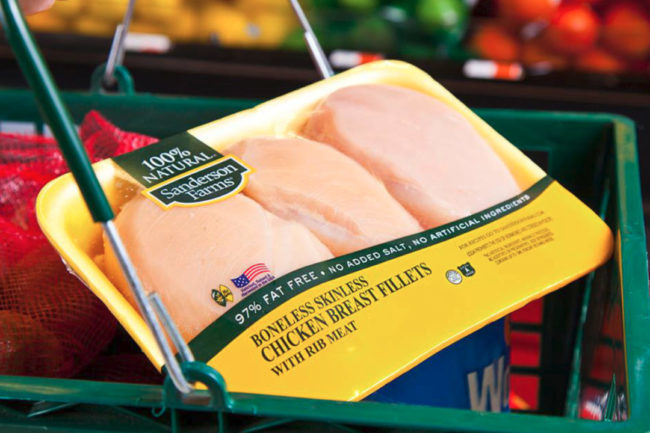LAUREL, MISS. — Sanderson Farms Inc. announced improved sales and income for its fiscal second quarter while also commenting on the status of it being acquired by Continental Grain Co. and Cargill.
For the second quarter ended April 30, 2022, net sales totaled $1.54 billion, up from the $1.13 billion reported during the same quarter the previous year.
Net income from the quarter was $321.2 million, which compares to a net income of $96.9 million reported during the second quarter of 2021.
In the earnings release, Sanderson also provided details on the status of the merger.
A Form 10-Q from Sanderson Farms stated that the involved companies received a request from the Department of Justice for additional information and documents in connection with its review of the transaction. The companies said they complied with that request and continued to cooperate with the DOJ. The parties expect the merger to be completed in the first half of the calendar year 2022.
In the earnings information, Sanderson Farms also addressed other major market factors right now including avian influenza (AI). The poultry processor reported that one of its broiler flocks in North Carolina and a commercial pheasant flock in Texas were also affected.
“We have a high degree of confidence in our industry’s biosecurity program, but we cannot be certain our flocks or others in our industry will not be significantly affected by AI,” Sanderson Farms said. “Given our high degree of confidence in our biosecurity programs, we believe the primary risks associated with domestic outbreaks of AI are market risks, as many countries to which our industry sells product typically impose bans on the import of broiler meat produced in the United States when AI is found.”
Sanderson noted that the average selling price for products was up 33.6% but was partially offset by an increase in feed costs as well as higher non-feed costs.
“The increase in average selling prices for fresh and frozen chicken products during the second quarter of fiscal 2022 versus the same quarter a year ago reflects significantly higher realized prices for products from our plants that process a larger bird primarily for foodservice customers and further processors,” the company said.
Sanderson also said that its strong demand for chicken has coincided with constraints on the supply side. This includes limited capacity expansion, labor shortages, supply chain logistics and elevated construction costs.
The full earnings information can be found here.

